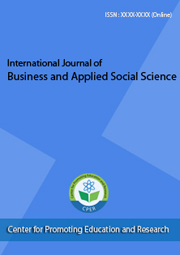Journal Menu
current
VOLUME: 1, ISSUE: 1, DECEMBER 2015
Table of Contents
Articles
Author(s): AHMAD SHAH AZAMI
Full Text
2482 2086
2482 2086
Abstract:
Following the US led invasion of the country in late 2001 and the fall of the Taliban regime, a new process of democratization started based on the Bonn Agreement -a draft under the umbrella of United Nations which gave a road map to Afghans and the international community for a transition to a successful democracy and stability in Afghanistan. The presidential, parliamentary and provincial councils’ elections were held. Another important achievement in the country is the standardization of the human rights, especially women rights through establishing an independent commission of human rights. Now there are dozens of female MPs and women candidates stood in the race to be the president of the country.Although efforts are underway for democracy to work in Afghanistan, there are a number of challenges and obstacles. People’s expectations have not been met and the country still faces insecurity, intimidation, corruption, violation of rights, and warlordism. The paper outlines democratic achievement in the country in post-Taliban Afghanistan and discusses challenges and factors that threaten the nascent democracy.






